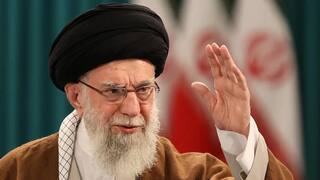National Unity Day: Integrating Mindfulness & Values In Education For Future Generations
Educational institutions have a vital role in promoting peace by integrating traditional values and mindfulness practices into their curricula, nurturing responsible global citizens.

By Prof Milind Patre
National Unity Day: Mahatma Gandhi once said, "If you want real peace in the world, you shall have to begin with children." This is profoundly true, as a father is simply a child who has grown. But does peace really hold the highest value for us? If we take a closer look within ourselves and at the world around us, the answer might not be a definitive ‘yes.’ While every human being may speak of peace as the goal— the 'summum bonum' of life— our actions and priorities often suggest otherwise.
However, educational institutions today have both the responsibility and the opportunity to become champions of peace by developing dedicated curricula that include peace programs for all students.
These programs should integrate elements of Indian tradition, culture, and heritage; scientific studies of the mind, matter, spirit, and consciousness; Indian epics such as the Ramayana and the Mahabharata; the Bhagavad Gita; the Upanishads; comparative studies of major world religions; and Yoga. Such an approach would foster both mental and physical well-being from an early age, helping to cultivate a mindset of peace in future generations.
Additionally, it is essential to promote the concept of a ‘Value-Based Universal Education System.’ The language, traditions, culture, and religious beliefs may differ across geographies and societies; however, the time-tested values are common and universal. These values are nothing but principles of nature, and to the extent that we conduct ourselves in harmony with them, they bring us happiness, joy, and success.
Conversely, to the extent that we go against these natural principles, they bring decay, disintegration, and failure. Values like integrity, honesty, justice, compassion, empathy, patience, and simplicity must occupy the foundational pillars upon which the edifice of larger goods can be created, which remains sustainable. The compelling need of the day is education that makes one physically fit, mentally alert, intellectually sharp, and spiritually elevated.
Swami Vivekananda once said that if you really want to help people, you will have to help them train their minds. The decreasing attention span, especially in students, is a matter of great concern, and the only effective way to address it is through the ancient wisdom of ‘Dhyana’ or meditation.
Qualified and dedicated teachers should engage students in a few minutes of mind-body guided relaxation, healing techniques, and various systems of meditation. The ensuing results are quite phenomenal, with many students experiencing an expanded level of consciousness and heightened alertness. The mental health issues, which, especially after the Covid pandemic, have captured the attention of many, can be safely addressed through the regular practice of meditation.
Having a dedicated peace program can bring truly a revolution in education. This unique experiment can be a pathfinder, a trailblazer, which will have a long-term evolutionary consequence, both for the individual and the educational Institutions. The seeds of higher consciousness are being sown in the fertile minds of the young students, and the seeds will remain there, and when the season is right, they will blossom into the flowerings, and the fruits will be ‘responsible global citizens of the world community’.
(The author is Associate Dean, Department of Peace Studies, MIT World Peace University, Pune.)
[Disclaimer: The opinions, beliefs, and views expressed by the various authors and forum participants on this website are personal and do not reflect the opinions, beliefs, and views of ABP News Network Pvt Ltd.]
Education Loan Information:
Calculate Education Loan EMI






































